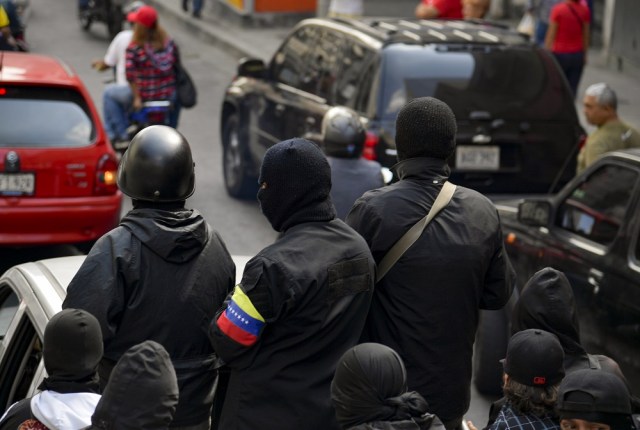
As the political crisis and the coronavirus pandemic worsen, the regime of Venezuela’s Nicolás Maduro has ceded control of different urban areas in Caracas and the country’s inland to the so-called “illegally armed colectivos.”
By Diálogo – Digital Military Magazine
Sep 25, 2020
At the entrance to the 23 de Enero parish, barely half a kilometer from the Miraflores Presidential Palace, these groups have taken on the mission of controlling the passage of passersby and vehicles.
According to several human rights non governmental organizations (NGOs), such as the Venezuelan Observatory of Social Conflict (OVSC, in Spanish), repression worsened during the first half of 2020 with the enforcement of social confinement measures, in which illegally armed “colectivos” have played a key part, together with the Special Action Force (FAES, in Spanish) of the National Police and the Bolivarian National Guard (GNB, in Spanish). These groups have played a leading role in repressing 221 protests from January to June of this year, the OVSC said.
At the same time, the OVSC indicates, illegally armed “colectivos” have taken part in acts of selective violence and threats against political dissent through the so-called Operation Bolivarian Fury that Maduro launched in late March.
“Fifty-seven people were victims of harassment, including vandalism to the facade of their homes with threatening messages,” the Venezuelan human rights NGO Provea reported.
On its Twitter account, Provea said that in the first month of the state of emergency, which was declared on March 13, there were 34 arbitrary detentions, 10 of which were journalists.
Although there is no accurate estimate of the number of illegally armed “colectivos” operating in the country, a Provea report from April 2019 says that there might be at least 70 groups. Initially, these groups were only seen intermittently in big cities, such as Caracas, Barquisimeto, and Mérida.
“Their job is to repress political dissent, which is less politically costly for the regime than when security forces do it. Since they wear civilian clothes, it looks like a conflict between the people, and that has a lower cost,” said Marino Alvarado, Dissemination and Research coordinator at Provea.
For Alvarado, the illegally armed “colectivos” are going through a process of “assimilation” to be accepted within the structure of the Bolivarian National Armed Force. That, he said, would explain the active participation of these groups in all civil-military exercises conducted since late 2019.
…
Read More: Diálogo – Digital Military Magazine – Maduro hands over control of urban areas to illegal armed groups
…

